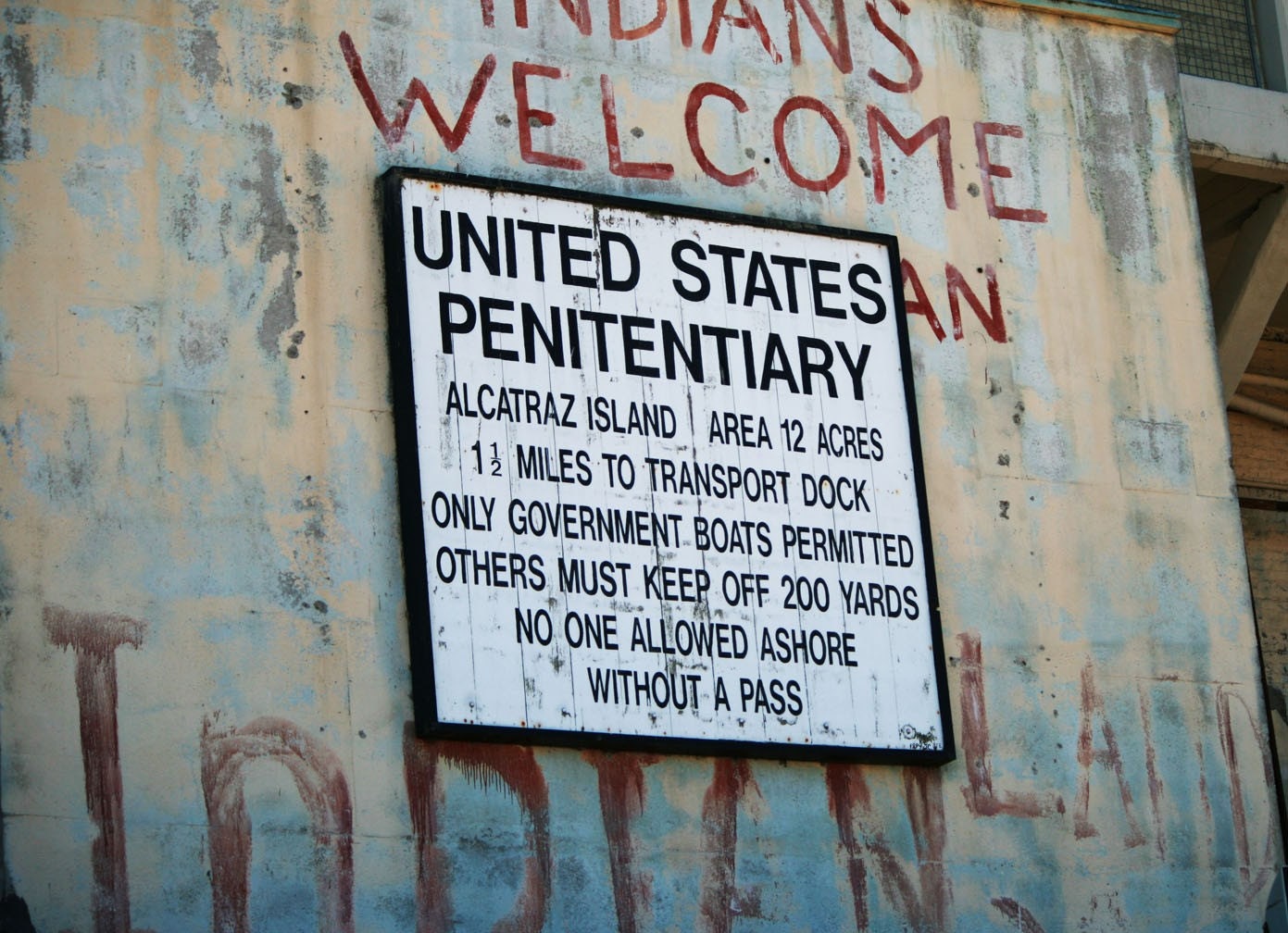 |
| Old Alcatraz Prison Island Sign- Fine Art Photograph by Michele at One December. Available on etsy. |
Welcome to Week 11 of Human Rights Meditations. Each week we’re looking at an Article in the United Nation's Universal Declaration of Human Rights. Learn more about the series here. This series is way more about the time that you spend reflecting, and engaging in the discussion via comments below & twitter (hash tag #hrmlak) than it is about my own perspective, so please join in!
This week we’re looking at Article 11 of the UDHR.
Article 11: (1) Everyone charged with a penal offence has the right to be presumed innocent until proved guilty according to law in a public trial at which he has had all the guarantees necessary for his defense. (2) No one shall be held guilty of any penal offence on account of any act or omission which did not constitute a penal offence, under national or international law, at the time when it was committed. Nor shall a heavier penalty be imposed than the one that was applicable at the time the penal offence was committed.
Read over the article above a few times and let it sink in (this is a long one, so you may want to break it up as you reflect). As you reflect, consider the following:
· What's the first picture that came to your mind?
· How did you respond to what you read?
· Reflect how you feel about yourself in comparison to others.
· Reflect on how you perceive others in your world.
· Reflect on your understanding of global issues.
Write the article down and stick it somewhere where you know you'll see it throughout the week. This will prompt you to keep the thinking going! Alternatively, write down something that has stood out to you throughout this meditation.
Now, get talking! Let's talk openly about our thoughts on each article, what we're learning about ourselves and some of the actions we're taking to live more in line with the Declaration. Don't forget that as well as chatting via the comments below, you can get talking via twitter by including this tag: #hrmlak
I'll go first:
- Forgetting the formal court process for a moment, what comes to mind are the judgments we make every day, based on people's looks. We talked about this in the discussion in Week 6 of this series. My day job consists of working with young people in the community, and I come across the judgments made against them (just because of their age) every single day. I find this perhaps the most bizarre of all stereotypes/judgments because at some point we've all been a "youth". My thinking has always been that we judge based on fear of the unknown, but this can't be the case for judging children/young people!
- Guantanamo Bay also comes to mind! One of the criticisms of this (and the whole US processing of "suspected terrorists") is that court processes were behind closed doors, and that the system was not transparent (thus information "leaks" from time to time). I'm someone who really believes in the importance of transparency of government. Accountability is key!
- Not to mention the laws we saw in the US & in Australia that followed 9:11 regarding the "rights" of the nation state to detain someone based on suspicion of terrorism (based on call in's from concerned citizens)- it seems that these laws in many ways allow book-cover and prejudiced judgments to direct the justice system! I think laws like this tend to (even when not on purpose) promote stereotypes and justify prejudice.
Kate xx
PS: Thanks to Michele @ One December for supporting this series and sharing her photograph. You can check out more of Michele's work at her etsy shop.
PS: Thanks to Michele @ One December for supporting this series and sharing her photograph. You can check out more of Michele's work at her etsy shop.

Good to Know... "My day job consists of working with young people in the community, and I come across the judgments made against them (just because of their age) every single day."... Is there any choice to go other courts.
ReplyDeleteGood question: there is actually a separate judicial system for most offenders by those under 18 years old, and a separate detaining facility. Unfortunately, some young people, once finding themselves "in the system" find themselves experiencing more stability while detained for offences, and end up offending again, because they feel safer "locked up"- many young people who offend do so because they feel they have no other option, and in my experience, young people who continue to break the law have a lot more going on than "being naughty".
DeleteAlso interesting to check out is all the info about the drug diversion program, which kept first time drug offenders (under 18 years) out of courts by sending them to drug counselling, and family conferences, which is a much more restorative focus to responding to law breaking.
In a nutshell, there are some better systems out there, but they don't always meet the needs of the young people and their families who have a lot more going on in their lives, much worse than ending up in court!